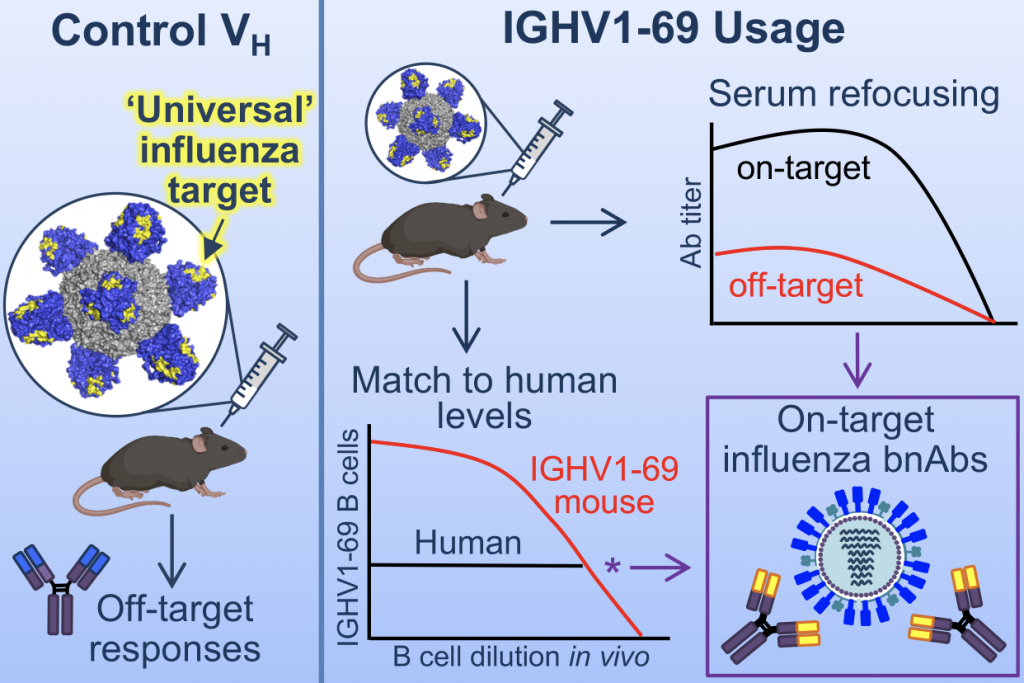Date: September 27, 2019 By:

Article originally published on Cell Press, Immunity, September 25, 2019
DOI:https://doi.org/10.1016/j.immuni.2019.09.001
Cambridge, MA. A team of researchers led by Dr. Daniel Lingwood from the Ragon Institute of Mass General, MIT, and Harvard have investigated how Human broadly neutralizing antibodies (bnAbs) against influenza virus can be biased for VHgene usage, suggesting gene-encoded development pathways. Sangesland et al. show that human IGHV1-69 B cell receptors impart natural affinity for a ‘universal’ vaccine target, enabling rapid bnAb responses in mice that were elicited using a rationally designed influenza immunogen. The results have now been published in the renowned journal “Immunity”.
Highlights from the article:
• Generated mice with user-defined human antibody VH-genes and humanized CDRH3 diversity
• IGHV1-69 use enables elicitation of IgG against a ‘universal’ site on influenza
• A single flu immunogen elicited gene-encoded broadly neutralizing antibodies
• The response was achieved when IGHV1-69 B cells were titrated to human frequency

Photo credits: Sangesland et al., 2019, Immunity 51, 1–15
Contacts:
Lead Contact: Dr. Daniel Lingwood, dlingwood@mgh.harvard.edu, Ragon Institute of Mass General, MIT, and Harvard, Cambridge, MA
Ragon Institute Media contact: Corrie Martin, cmartin45@mgh.harvard.edu, 857-268-7074

Their findings, to be published in Cell next month, reveal how the virus manipulates immune system processes to avoid destruction by natural killer (NK) cells, a type of white blood cell that is crucial for fighting viral infections.

The lab of the Ragon Institute faculty member Hernandez Moura Silva, PhD, recently published a review in Science Immunology regarding resident tissue macrophages (RTMs), shedding light on their multifaceted roles in organ health.

After three years off due to the COVID-19 pandemic, the Ragon-MIT course HST.434 returned this January to provide 24 students a once in a lifetime learning experience